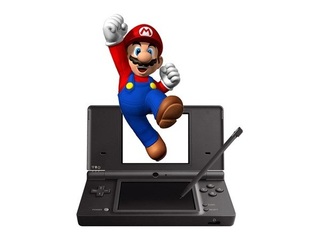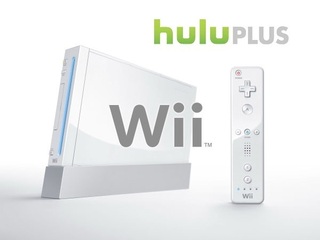M&A activity in the warehouse robotic space
Robots are taking over the heavy lifting work inside warehouses
Read more...
I got my first gaming console, the original Nintento NES, back in 1989 and I have many memories of sitting in front of the TV, playing the original Super Mario Bros., Duck Hunt, Tetris and a million other games for hours and hours. The world has obviously changed a lot since then, though, and kids these days are more than happy to play games on their phones, and tablets. They don’t need to pay hundreds of dollars for a console and $50 to $60 for each game (a pretty good thing for parents, I'd imagine).
The shift in where kids get their games is seriously hurting the video game industry. It also hasn't helped that a new video game console hasn't been released in years.
The last major release I can think of was the Xbox 360, and that came out in 2005. That is a full seven years without a new console for people to buy.
That part, at least is about to change. This past week, Nintendo announced the release date for its newest console, Wii U. It will be released in the United States on November 18. How well it does could be a real indicator of the future of the video game industry. If it sells well, it will prove that people were simply waiting for a new system to arrive. If it fails, it will be another indicator that people have moved on in how they view games.
Wii U specs
The Wii U will come in two versions: a Basic Set and Deluxe Set.
The Basic Set will come in white, and is going to sell for $299.99, while the Deluxe Set will come in black, will retail for $349.99, and will come with more storage capacity, extra accessories and the new Nintendo Land video game.
Each version comes with touch-screen controller called the Wii U GamePad, and it will play games made for the original Wii.
Even more important than the Wii U was the unveiling Nintendo Tvii, an app that will integrate with the Wii U, and will essentially become the users entertainment platform. Nintendo Tvii allows users to bring all of their video content, including streaming, live TV and recorded shows, together into a single interface.
Nintendo also announced over 50 games for the Wii U, including New Super Mario Bros. U, LEGO City: Undercover, BAYONETTA 2, The Wonderful 101, Capcom’s Monster Hunter 3 Ultimate and Call of Duty: Black Ops II.
Recent losses for Nintendo and the industry
The Wii was first introduced in 2006, and was immediately seen as a giant leap forward for video games; one that would finally motivate kids to get off the couch.
The system was a big success, selling over 600,000 consoles in its first eight days. It became the worldwide leader in sales less than a year after being released. At the time, Nintendo stock was worth $56.85. It would hit a hit of $78.50 in October 2007.
Wii sales have recently stalled, though, with handhelds outpacing sales in 2011. In January, the company projected its first annual loss in 30 years.
In its most recent earnings report, Nintendo posted net sales of 84.8 Billion Yen, down 9.7% from the 93.9 Billion it reported in the same quarter last year. Nintendo’s net income was a loss of 17.2 Billion Yen, though that was an improvement over the 25.5 Billion Yen loss the company posted the year before.
Nintendo is seeing loses, but the video game industry overall is not doing any better.
Earlier this month, NPD Group reported that sales of new video game hardware, software and accessories in the United States fell for the ninth straight month in August. Overall sales fell 20 percent from the year before to $515.6 million.
In addition, the hardware sector dropped 39 percent year over year to just $150.6 million, indicating a big loss in the number of consoles sold.
Obviously Nintendo is being ambitious with this new release, but the question becomes: can it help save the company, and the video game industry as a whole.
(Image source: https://www.nintendo.com/wiiu/features/)
Robots are taking over the heavy lifting work inside warehouses
Read more...The company also expanded access to 12 different provider types for male fertility care
Read more...Ezra's AI cancer screening platform will be available in 150 RAYUS locations
Read more...




